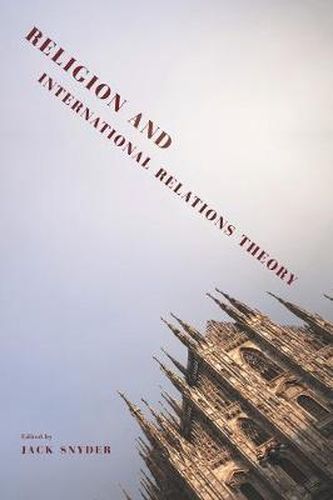Readings Newsletter
Become a Readings Member to make your shopping experience even easier.
Sign in or sign up for free!
You’re not far away from qualifying for FREE standard shipping within Australia
You’ve qualified for FREE standard shipping within Australia
The cart is loading…






Religious concerns stand at the center of international politics, yet key paradigms in international relations, namely realism, liberalism, and constructivism, barely consider religion in their analysis of political subjects. The essays in this collection rectify this. Authored by leading scholars, they introduce models that integrate religion into the study of international politics and connect religion to a rising form of populist politics in the developing world. Contributors identify religion as pervasive and distinctive, forcing a reframing of international relations theory that reinterprets traditional paradigms. One essay draws on both realism and constructivism in the examination of religious discourse and transnational networks. Another positions secularism not as the opposite of religion but as a comparable type of worldview drawing on and competing with religious ideas. With the secular state’s perceived failure to address popular needs, religion has become a banner for movements that demand a more responsive government. The contributors to this volume recognize this trend and propose structural and theoretical innovations for future advances in the discipline.
$9.00 standard shipping within Australia
FREE standard shipping within Australia for orders over $100.00
Express & International shipping calculated at checkout
Religious concerns stand at the center of international politics, yet key paradigms in international relations, namely realism, liberalism, and constructivism, barely consider religion in their analysis of political subjects. The essays in this collection rectify this. Authored by leading scholars, they introduce models that integrate religion into the study of international politics and connect religion to a rising form of populist politics in the developing world. Contributors identify religion as pervasive and distinctive, forcing a reframing of international relations theory that reinterprets traditional paradigms. One essay draws on both realism and constructivism in the examination of religious discourse and transnational networks. Another positions secularism not as the opposite of religion but as a comparable type of worldview drawing on and competing with religious ideas. With the secular state’s perceived failure to address popular needs, religion has become a banner for movements that demand a more responsive government. The contributors to this volume recognize this trend and propose structural and theoretical innovations for future advances in the discipline.